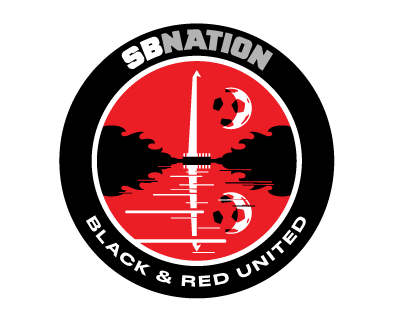/cdn.vox-cdn.com/uploads/chorus_image/image/65810314/1186580274.jpg.0.jpg)
MLS’s never-ending expansion has once again put the league in an awkward position, as the additions of Inter Miami and Nashville SC bring us up to 26 clubs for 2020. Miami, logically, will join the Eastern Conference, while Nashville — a city that is slightly further east than the westernmost team in the East, Chicago — will be placed in the West. Got all that?
With league execs apparently content with the 34-game schedule that has been in place for years, that means we’re going to have a strange schedule. Last year, 34 was a reasonable fit: home and away games against your conference foes added up to 22 games, and then you’d play each of the 12 non-conference opponents once to get to 34.
This year, with two 13-team conferences, that plan doesn’t work. D.C. United would play 24 games against their fellow Eastern teams, and then 10 against teams from the West (5 at home, 5 away). There will be 3 teams that United simply doesn’t have a game against, barring long runs in the playoffs or the U.S. Open Cup. That’s never happened in MLS before.
If that doesn’t seem like a particularly major issue, consider this: the teams in the East that don’t have to play LAFC are in all likelihood going to have a statistically easier schedule, especially compared to a team that might end up playing none of the West’s bottom three. Similarly, the unlucky team who ends up with the most flights to the opposite coast is, factually speaking, at a higher risk for injuries and fatigue than their competitors.
Those issues already existed under the old schedule, depending on how your split of home and away out-of-conference games broke down, but this really expands the impact the imbalance will have on the final standings. It’s one thing to have competition between one team who has to fly to the Pacific Northwest twice while the other only has to do so once. It’s another thing to have a team possibly get that crucial win that gained them a postseason spot because they played an expansion club rather than a Supporters Shield contender.
Speaking of the Shield, this move is fairly damaging to its value, as the relative strength of schedule will inevitably give a team a leg up in that race. Whether or not it’s an intentional move, it is in line with reports from The Athletic that outside consultants have advised MLS to reduce the importance of the Supporters Shield wherever possible.
What does this all mean for United? Well, when the schedule comes out (Steve Goff is reporting that we could find out pretty soon), it’ll be pretty easy to tell whether the news is positive or negative. If you see “at LAFC,” “at Seattle,” and “at Real Salt Lake” on there, it’s probably not good! If it’s more like “home vs. Vancouver” and “home vs. Nashville,” United’s chances of getting into the playoffs are markedly better.
